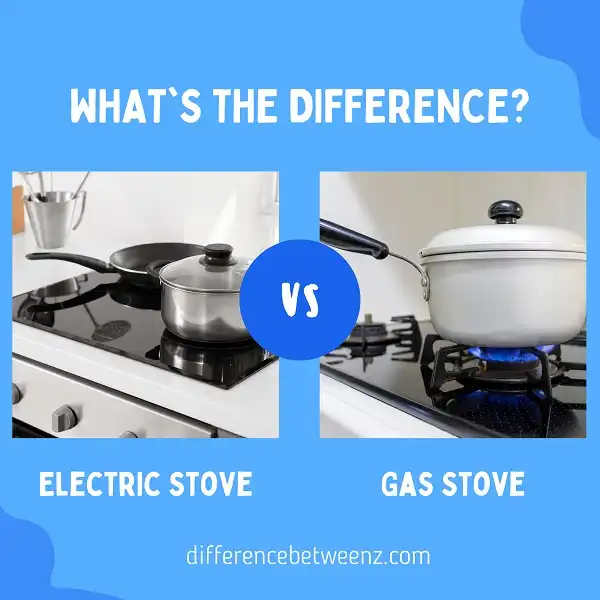When it comes to cooking, there are a few different types of stoves that people can choose from. Electric stoves and gas stoves are two of the most popular types, but what are the differences between them? Here is a breakdown of the pros and cons of electric stoves and gas stoves to help you decide which one is best for you.
What is Electric Stove?
Electric stoves use electricity to heat coils that generate heat to cook food. Electric stoves are often more expensive than gas stoves and can take longer to heat up, but they are much safer since there is no open flame. Electric stoves are also easier to clean since there are no drip pans or exposed burners. When shopping for an electric stove, it is important to consider the size of the unit, the type of heating elements, and whether you want a smooth top or coil top.
Electric stoves come in a variety of sizes, so it is important to choose one that will fit in your kitchen. The type of heating element is also important to consider. Coil elements take longer to heat up but they are less expensive than radiant elements. Smooth top electric stoves have a ceramic glass surface that is easy to clean but more expensive than coil top models.
What is Gas Stove?
Gas stoves are a type of stove that uses natural gas, propane, butane, or other flammable gas as a fuel source. Gas stoves are popular because they are typically less expensive to operate than electric stoves and they heat up quickly. Gas stoves also tend to be more efficient than wood-burning stoves. One disadvantage of gas stoves is that they produce carbon monoxide, a colorless and odorless gas that can be deadly if inhaled.
For this reason, it is important to make sure that your gas stove is properly vented to the outdoors. Another potential downside of gas stoves is that they can be difficult to light in power outages. If you are considering purchasing a gas stove, it is important to weigh the pros and cons carefully before making a decision.
Difference between Electric Stoves and Gas Stoves
Electric stoves and gas stoves both have their pros and cons. Electric stoves are typically more expensive to purchase, but they are more energy-efficient to operate. Gas stoves, on the other hand, tend to be less expensive up-front but more costly to run in the long term. Electric stoves also tend to take longer to heat up and cool down, while gas stoves heat up almost instantly.
Electric stoves are also easier to keep clean since there are no open flames or exposed gas lines. However, gas stoves can provide better temperature control for cooking, since the flame can be adjusted easily. Ultimately, the best stove for a given household will depend on a variety of factors including budget, cooking needs, and personal preferences.
Conclusion
Electric stoves and gas stoves both have their pros and cons. It is important to understand the difference between the two before making a purchase. Gas stoves are often more affordable, but they can be dangerous if not properly used. Electric stoves are more expensive to buy, but they are safer and easier to use. Ultimately, the decision comes down to personal preference and what will work best for your home.


